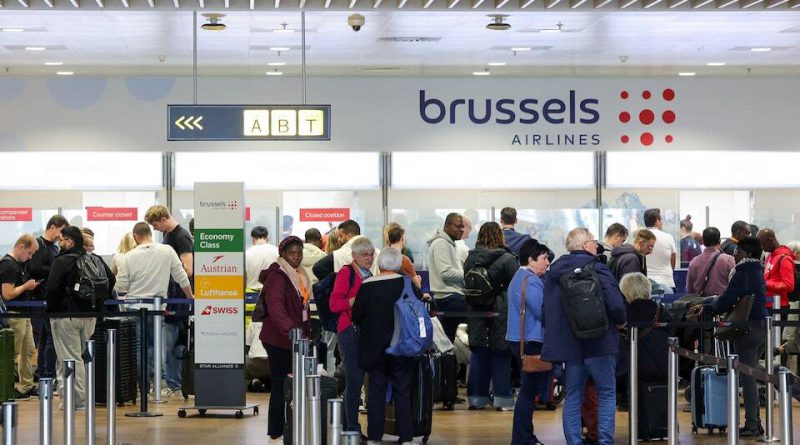Belgium Confronts Nationwide Airport Closures Following Coordinated Drone Disruptions
Brussels – Belgium is facing widespread disruption after multiple airports and a military base were forced to close due to coordinated drone sightings that authorities are treating as a deliberate and organized attack.
The incidents triggered an emergency response, with government ministers and national security officials set to meet urgently to address the escalating situation.
Drone sightings occurred simultaneously over Brussels, Antwerp, Liege, and Ostend airports on Tuesday evening, causing severe air traffic disruptions and grounding hundreds of passengers.
Flights were cancelled, diverted, and delayed for several hours, leaving airports struggling to resume normal operations by early Wednesday morning.
At Brussels Airport, the country’s busiest hub, three drones were detected flying over the perimeter around 8 p.m., forcing an immediate shutdown.
Although the airport briefly reopened two hours later, another drone appearance caused another suspension until around 2 a.m., affecting both departures and arrivals.
Similar sightings were reported across other major airports in the country, with Antwerp, Liege, and Ostend halting all operations as a precaution.
The Defence Ministry also confirmed that drones had been spotted flying above the Florennes air base, one of Belgium’s key military installations.
Defence Minister Theo Francken told Parliament that the drone activities appeared to be part of a structured and deliberate plan intended to create widespread disruption.
He stated that the formation and coordination of the drones suggest a sophisticated operation rather than random civilian interference.
Francken described the events as consistent with “hybrid techniques” — referring to tactics used to destabilize or intimidate nations through unconventional means such as cyber interference, misinformation, or coordinated sabotage.
He said that the government is treating the matter as a potential threat to national security.
Authorities confirmed that Brussels Airport had cancelled at least 81 flights and diverted 24 others since the initial closure.
Many of these cancellations occurred even after the airport reopened, as planes were stranded at the wrong airports and crew schedules had been disrupted. The first departure on Wednesday did not take place until after 6:30 a.m.
Liege Airport, one of Europe’s largest cargo hubs, also faced significant interruptions. It was closed for nearly seven hours, with five flights cancelled, eight diverted, and dozens more delayed. Operations only resumed at 3 a.m. after airspace was declared clear by authorities.
The Belgian government’s emergency session aims to identify the source of the drone activity and coordinate countermeasures to prevent future disruptions.
Intelligence agencies are currently investigating whether the incidents were domestic or linked to external actors seeking to test Belgium’s air defense and response capabilities.
Across Europe, similar drone-related disruptions have been reported in recent months, raising fears of a broader pattern of attacks targeting aviation infrastructure.
Airports in Denmark, Norway, and Germany — including Oslo, Copenhagen, and Munich — have also been temporarily shut down due to drone sightings since September.
Officials in several European countries have speculated that these incidents may be part of coordinated attempts at hybrid warfare, where hostile entities use technology and psychological tactics to create confusion and instability.
However, investigations have so far revealed little about who is behind these actions or their ultimate objectives.
Aviation experts have expressed growing concern about the potential risks drones pose to civil aviation. Even small unmanned aircraft can cause serious damage if they interfere with passenger planes during takeoff or landing.
The incidents in Belgium have reignited calls for stricter drone regulations and improved detection systems.
The disruption also highlights the vulnerability of modern transportation infrastructure to low-cost, high-impact technologies that can paralyze major hubs in minutes.
Belgian authorities are expected to implement new airspace surveillance measures and increase coordination between civilian aviation and the military.
As the investigation continues, travelers are being urged to monitor airport updates and prepare for potential flight rescheduling.
The government has pledged to take decisive action to protect national infrastructure and prevent future disruptions from similar drone incidents.



